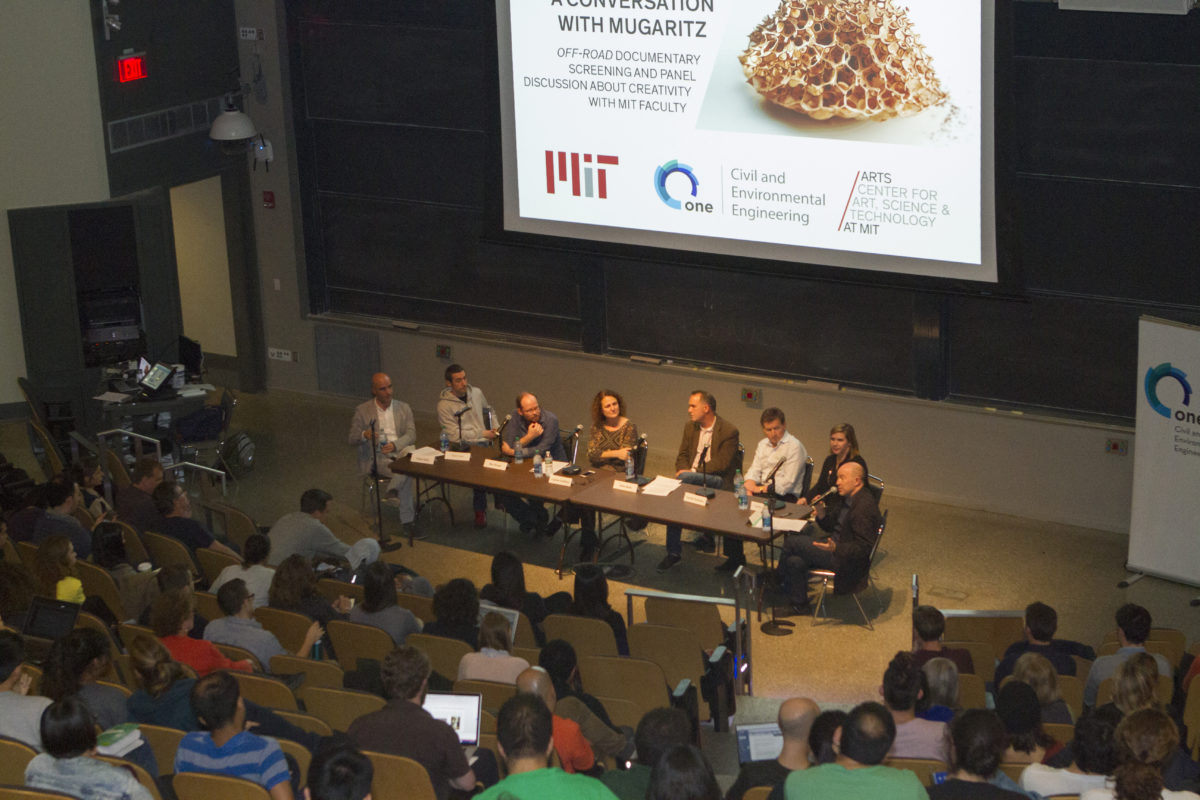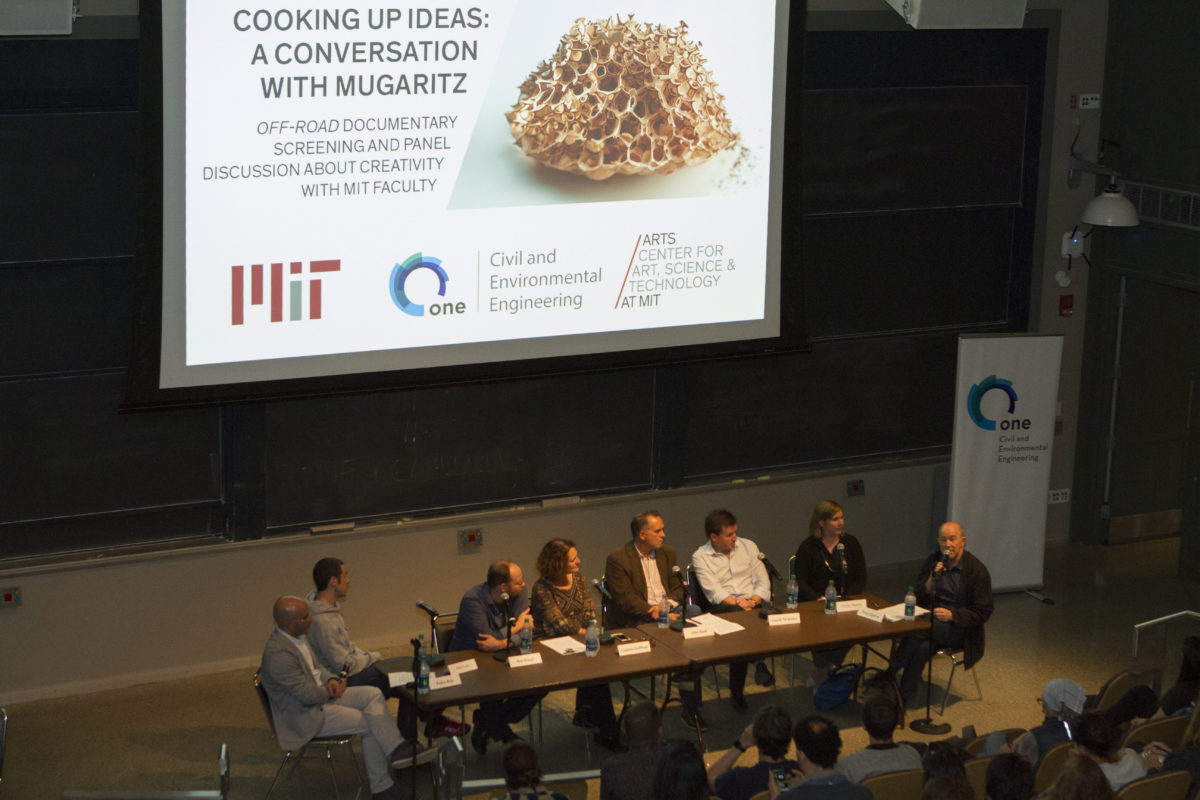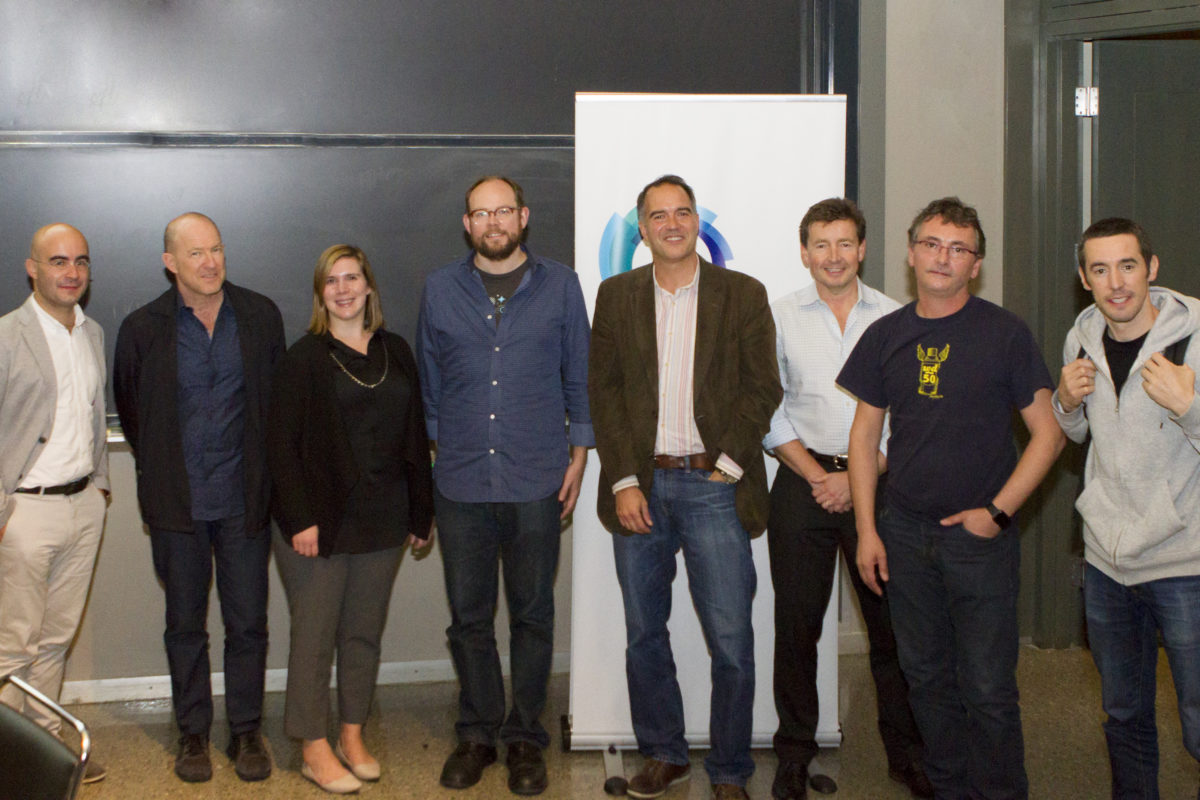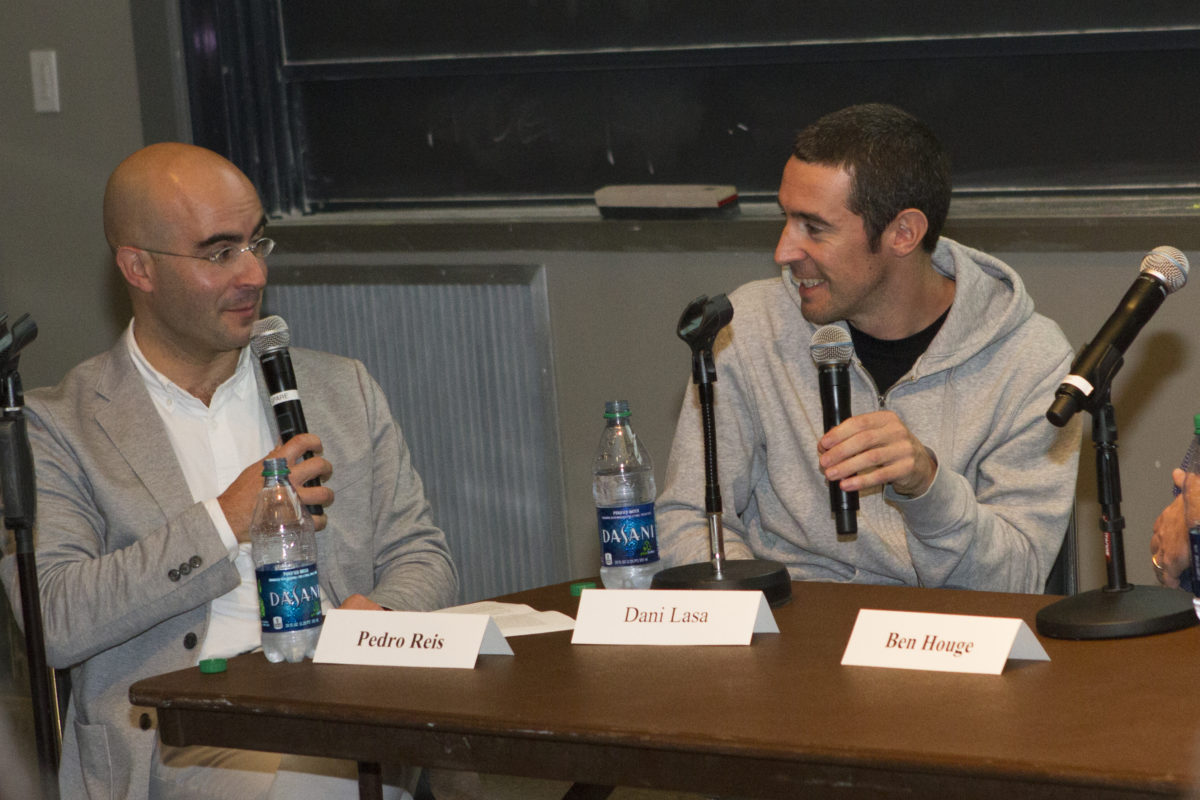Creativity according to Mugaritz and MIT
“When you take the off-road and not the well-traveled road, it is much more painful, but it is exciting and it is worth it, even knowing that I am going to fail by trying to take this route,” says one of the chefs from Mugaritz in the documentary Off-Road. At Mugaritz, a two-Michelin-star restaurant in northern Spain, the creative process almost surpasses the culinary goal. Pep Gatell, Director of Off-Road and Creative Director of the Catalan theatre company La Fura dels Baus, observes that gastronomy, like any creative endeavor, requires, “years of trial and error, discipline, work, knowledge and a bit of luck.”
Pedro Reis, Associate Professor of Civil and Environmental Engineering and Mechanical Engineering, believed that Mugaritz’s commitment to rigorous exploration would resonate across disciplines at MIT. In November 2016, Reis invited Andoni Luis Aduriz, Mugaritz Chef and Founder, and Dani Lasa, Director of R+D and Creativity at Mugaritz, to MIT for a broad discussion about creativity, “Cooking up Ideas: a conversation with Mugaritz.” This creativity forum—Reis’s second collaboration with MIT’s Center for Art, Science & Technology (CAST)—included mathematicians, musicians, engineers and architects. Part of CAST’s mission is to create such opportunities for scientists and engineers to think in another framework and to engage with artists in ways that are mutually enlightening.
Collective Creativity
The discussion was followed by a screening of Off-Road and a Q&A session with Chef Aduriz. Aduriz explained how previous documentaries about Mugaritz were “too sterile” and idealized the restaurant. Off-Road presents the creative process honestly—it is difficult to make work, even more difficult to make excellent work, and the hardest part of all, he says, “is to make excellence shareable.” Mugaritz has three kitchens: a production kitchen, a service kitchen and a creative kitchen, where 25-30 chefs formulate new ideas. Reis speculates that, “the Mugaritz experience is translatable to the MIT environment,” where labs rely on the collective creativity of research teams to find novel solutions and where innovation results from working within constraints.
Similarities between a restaurant and an MIT research lab
When Reis first met the Mugaritz chefs, he was struck by similarities between the restaurant’s approach and that of his EGS.Lab (Elasticity, Geometry & Statististics Laboratory), which is dedicated to the fundamental understanding of the mechanics of thin structures, such as rods, plates and shells, in order to transform structural deformations into novel functionalities. In 2014, he invited members of the Mugaritz research and development team to present in the MMEC (Mechanics: Modelling, Experimentation, Computation) seminar series, co-sponsored by CAST. Their demonstration, “Mugaritz, a natural science of cooking: senses, structures, textures and emotions,” focused on the properties of food beyond taste, including its structure and its social and cultural significance.
At the creativity forum, Lasa reiterated these points, emphasizing that cuisine appeals to other sensory systems, not merely taste. He also positioned his work at Mugaritz in relation to engineers, scientists, mathematicians and architects—people for whom, he said, creativity is tied to usefulness.
Process, Problem-solving and Creativity
Reis and Evan Ziporyn, faculty director for CAST and the Kenan Sahin Distinguished Professor, Chair, Music and Theater Arts, moderated the discussion, covering such topics as creative constraints; how collaboration breeds innovation; and the interaction between process, problem-solving and creativity.
John Bush, Professor of Applied Mathematics and Associate Department Head, pointed out that constraints do not preclude creativity, noting that poetry that adheres to a strict rhyme scheme is not necessarily less inventive than free verse. The other mathematician on the panel, Gigliola Staffilani, Abby Rockefeller Mauze Professor, Department of Mathematics, said, “the process of thinking mathematically is creative in spite of constrained rules of logic.” She said, for mathematicians to achieve a “wonderful, beautiful result,” they have to think in a creative way, just as chefs work with a set of ingredients to construct Michelin-star worthy dishes.
Caitlin Mueller, Assistant Professor in Building Technology, MIT School of Architecture and Planning, spoke about how “solving a problem creatively is not necessarily just about the solution, but about the aspirations of what you’re trying to do.” She said, “Real creativity doesn’t just come from solving a problem that’s been presented to you, but by rethinking the problem, questioning what’s been asked of you…. Constraints are important, but pushing at the constraints or re-imagining them are often really fruitful directions—both for coming up with a new design for a building or a new dish in a restaurant. Food and buildings are similar in that, we’ve already mastered the basics. We know how to sustain ourselves, and we know how to create shelter that supports life. And yet, we’re still culturally pushing and advancing these fields, aspiring to excellence. That’s a sign that it’s about aspirations and not just solving a problem.”
The documentary
With the panelists’ insights in mind, Reis invited the audience to substitute “MIT” for “Mugaritz” as they viewed Off-Road. It was not difficult to relate the Mugaritz experience—the focus and intensity, the reverence for process, the pursuit of excellence—to the Institute. The documentary offered useful food for thought for people in any discipline. For instance, “creativity and innovation hurt,” and “The world is divided into people who have dreams and people dedicated to ruining those dreams,” and perhaps, words to live by in the new year, “You cannot be an asshole and achieve excellence.” The nods and knowing laughs in the audience suggested that the less-traveled road is a familiar path at MIT.
Panelists:
Andoni Luis Aduriz, Mugaritz Chef and Founder
John Bush, Professor of Applied Mathematics and Associate Department Head
Ben Houge, Associate Professor of Electronic Production and Design, Berklee College of Music
Dani Lasa, Mugaritz Chef
Gareth McKinley, Professor of Teaching Innovation, School of Engineering
Caitlin Mueller, MIT Architecture
Pedro Miguel Reis, Gilbert W. Winslow Associate Professor, Mechanical Engineering and Civil and Environmental Engineering
Gigliola Staffilani, Abby Rockefeller Mauze Professor, Department of Mathematics




